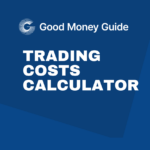The process for starting to trade CFDs is:
- Compare CFD trading accounts: When you are comparing CFD accounts, it is a good opportunity to decide if you want to trade on margin with a CFD or a financial spread bet. Whilst both CFD and spread betting offer leveraged trading, there are some differences between the two (like tax, for instance). Read up on the key differences in What’s the difference between CFDs and spread betting?
- Choose a CFD broker: Once you have decided that CFD trading may be for you, choose a CFD broker based on what is most important to you. The key things to consider when choosing a CFD broker are available markets, costs, fees, trading platform features and customer service. You can compare CFD brokers in the main comparison table or find CFD broker reviews, which highlight what individual CFD brokers are good at.
- Research a CFD trading strategy: Some very basic strategies can be valuable to new CFD traders, such as portfolio diversification, maintaining adequate risk capital and understanding the markets that you trade. Be careful when looking for CFD strategy information that you avoid CFD scams and beware of CFD educational providers, as many are only there to charge you for basic information.
- Open your account: When you have picked a CFD broker and decided to open an account, you will have to demonstrate that you understand the risks involved in CFD trading during the application process. For AML (anti-money laundering) requirements, you will also have to supply identification documents and proof of address.
- Pick your market / CFD trade type: Once your account is open and spending on what broker you have picked; you should have access to the global markets via CFDs. Decide what you want to trade by researching the underlying markets. The more you understand what you will be speculating on, the better chance you will have of success.
- Deposit funds: Most CFD brokers offer deposits via card or bank transfer. Some offer deposits by services like PayPal. Card and bank transfer are usually the quickest and cheapest ways to fund your account. It’s important to note that due to AML, you can only withdraw funds back to the method you deposited from.
- Making your first CFD trade: As CFD trading is high risk, it is sensible to start small and to not put all your eggs in one basket. By not risking all your capital on one trade, you will gain a gradual understanding of how the market moves and your positions react in a live environment. Trading with real money is very different from trading on a demo account.
- Setting up stop losses: A major element of CFD trading is “protecting your downside”, which means using a stop loss to minimise your losses. A stop loss will automatically close a position at a level you set, even if you are not there to click the buy or sell button.
If you want to be a better CFD trader, our guide, How to trade CFDs, can give you an advantage by offering free tips, trading strategies and an overall understanding of what CFD trading involves.

Richard is the founder of the Good Money Guide (formerly Good Broker Guide), one of the original investment comparison sites established in 2015. With a career spanning two decades as a broker, he brings extensive expertise and knowledge to the financial landscape.
Having worked as a broker at Investors Intelligence and a multi-asset derivatives broker at MF Global (Man Financial), Richard has acquired substantial experience in the industry. His career began as a private client stockbroker at Walker Crips and Phillip Securities (now King and Shaxson), following internships on the NYMEX oil trading floor in New York and London IPE in 2001 and 2000.
Richard’s contributions and expertise have been recognized by respected publications such as The Sunday Times, BusinessInsider, Yahoo Finance, BusinessNews.org.uk, Master Investor, Wealth Briefing, iNews, and The FT, among many others.
Under Richard’s leadership, the Good Money Guide has evolved into a valuable destination for comprehensive information and expert guidance, specialising in trading, investment, and currency exchange. His commitment to delivering high-quality insights has solidified the Good Money Guide’s standing as a well-respected resource for both customers and industry colleagues.
To contact Richard, please see his Invesdaq profile.



